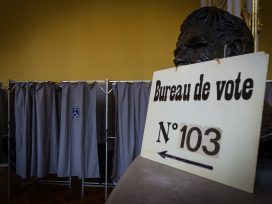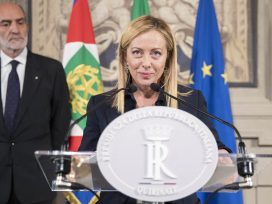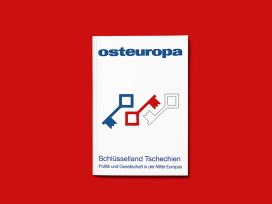Does Central Europe still exist? Disregarding for a moment those characteristics usually put forward as the foundations of the contested concept of Central Europe – literary and cultural heritage, befriended mentalities and common historical experiences – and looking instead at the unsentimental realpolitik currently conducted by the countries in the region, there can be no doubt about the answer to this question: No, Central Europe is no more.
On 1 March 2009, the Visegrad Four met to discuss possible common strategies to deal with the impact of the global economic crisis on Slovakia, the Czech Republic, Poland and especially Hungary. Opening the meeting, the Hungarian prime minister Ferenc Gyurcsány presented a plan to save the countries’ economies and to avoid political tensions and the threat of mass-migration provoked by the crisis. “We can’t accept a new Iron Curtain”, said Gyurcsány. It didn’t take long before the other three in the quartet voiced loud protests against this attempt to amalgamate the V4 countries. Slovak prime minister Robert Fico explained that the tendency to treat the states in the East as a unity only arose when Austrian banks encountered problems in some eastern European countries and gave the impression that there was a good West and a bad East. He added that, “the problems of the Hungarians are a thousand times worse than those of Slovakia! And considering that we belong to the Eurozone, even the Czechs and the Poles have more severe problems than we have in Slovakia.”
Later, Jacques Rupnik ironically called these undisguised misgivings about common identity and the refusal to take concerted action, “the grandest Central European declaration of solidarity since 1989″…
This type of narrow-minded realpolitik, driven by nationalist and populist agendas, makes transnational publishing endeavours such as this issue of Res Publica Nowa all the more important. In this context, the question whether Central Europe still exists or whether the Visegrad Group is a viable unity, becomes less consequential. Cross-border exchange of political, philosophical and aesthetic ideas is a way to forge new identities and put them to the test; a realm in which transnational values and principles – or transnational practices if you like – can be defined, shaped and reshaped. This practice is its own question – and its own answer. It has room for commonalities as well as differences, for unity as well as diversity.
Taken from a special English language edition of Res Publica Nowa, published with the support of the International Visegrad Fund








